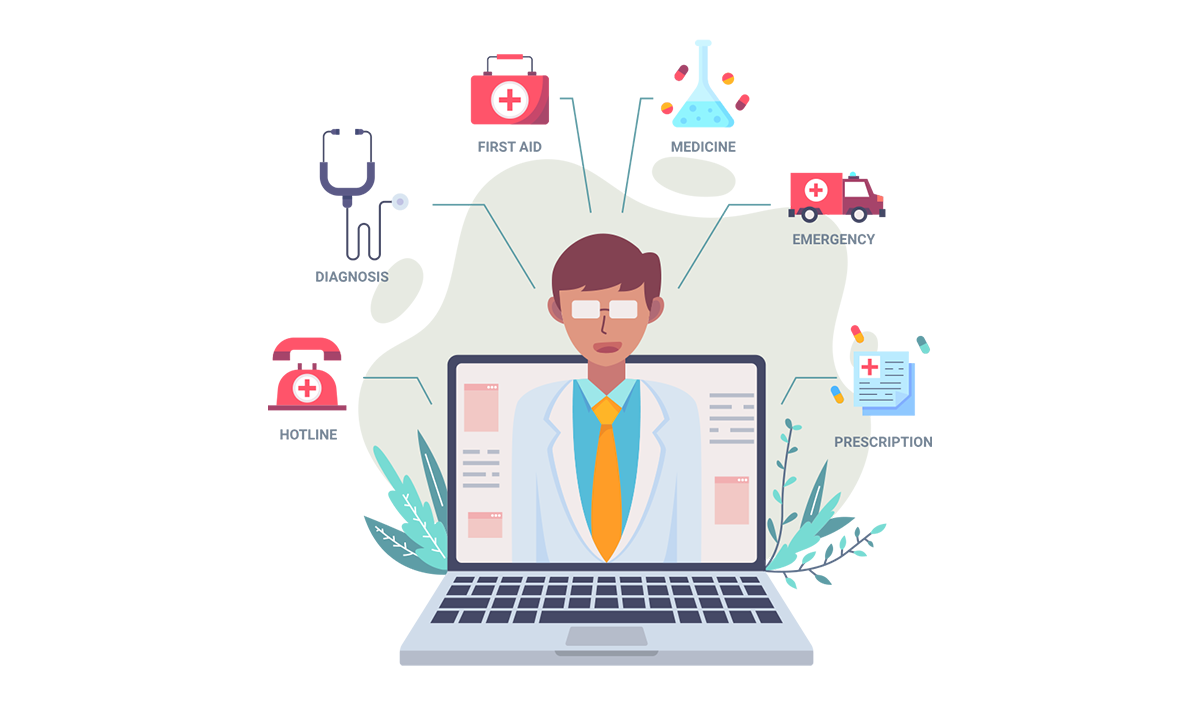This Course Structure is Curated as per the NEP-2020 Guidelines
Course Overview
The M.Sc. Health Informatics program at Malla Reddy Vishwavidyapeeth, Hyderabad, is a postgraduate course designed to equip students with the knowledge and skills required to apply information technology and data analysis in the healthcare sector. This program focuses on integrating healthcare data management, information systems, and digital technologies to improve patient care, streamline healthcare processes, and support decision-making in healthcare organizations.
This program focuses on equipping students with the theoretical knowledge and hands-on skills from 1st semester itself. The curriculum covers key areas such as health information systems, electronic health records (EHR), data analytics, telemedicine, and health data security. Students learn how to analyze and manage healthcare data, design and implement information systems, and address challenges related to data privacy and security. The program also includes training in medical coding, healthcare regulations, and the use of healthcare software and systems.
Graduates of this program emerge as ‘Skilled health informatics specialists’, enabling them to pursue further higher studies & do research in Health Informatics program along with plenty of job opportunities globally.

Course Details
Description: 2 Years Degree Program
No. of Seats: 20
No. of Credits: 80 minimum & as specified
- Eligibility
- Curriculum Structure
- Program Outcomes
- Career Enhancement
- Higher Studies
- Job Roles & Progression
Academic Qualification: A Bachelor’s degree in B.Sc. Health Informatics/Digital Health or equivalent with at least 50% aggregate marks from a recognized university.
Semester | Name of the Subject |
Semester 1 | Introduction to Health Systems, National Health Programs & ABDM, Introduction to AYUSH, Occupational health, English & Communication Skills, Computer Foundation, Understanding Data Source & Structure, Languages for Coding, Introduction to Github, Digital Health Terminology, Practicals in Coding |
Semester 2 | Principles of Epidemiology & Research Methodologies, Introduction to Biostatistics, Electronic health records, Healthcare data standards, Advanced data analytics (R/ SPSS/ STATA/ SAS), Data Visualization & GIS, Dashboards for Healthcare, Database Features, Practicals in Advanced data analytics (R/ SPSS/ STATA/ SAS), Practicals in Data Visualization & GIS |
Semester 3 | Telemedicine, Developing Health Informatics systems: Software, Hardware, Network & Sensors, Clinical Decision Support Systems, Patient Monitoring Systems, Consumers Health Informatics, Health Finance and Insurance, Cybersecurity for Health, Biometrics for Health Systems, Ethics in Health Informatics |
Semester 4 | Research Project / Thesis, Review of Topics/Electives |
- Healthcare Data Management: Expertise in managing, processing, and analyzing healthcare data to enhance decision-making and patient outcomes.
- Electronic Health Records (EHR) and Health Information Systems (HIS): Skills in designing, implementing, and optimizing EHR and HIS platforms for healthcare facilities.
- Health Data Analytics: Proficiency in using data analytics tools to generate insights for improving healthcare delivery and operational efficiency.
- Artificial Intelligence and Machine Learning in Healthcare: Competence in applying AI/ML techniques for predictive modeling, disease surveillance, and personalized medicine.
- Integration of Digital Health Technologies: Knowledge of combining telemedicine, IoT, and mobile health applications into healthcare systems.
- Regulatory Compliance and Ethics in Health Informatics: Understanding of global healthcare regulations, patient privacy laws, and ethical considerations in informatics.
- Interdisciplinary Collaboration: Ability to work across healthcare, IT, and management sectors to implement and support health informatics solutions.
- Certification in Health Data Analytics: Specialized training in analyzing and interpreting healthcare data using advanced tools.
- EHR and HIS Implementation Certification: Focused training on deploying and managing electronic health records and health information systems.
- AI and Machine Learning in Healthcare Certification: Advanced focus on applying AI/ML to solve complex healthcare problems.
- Regulatory and Compliance in Health Informatics Certification: In-depth understanding of regulatory frameworks and compliance requirements in health IT.
- Telehealth and IoT Integration Certification: Training in integrating digital health technologies for remote monitoring and patient care.
- Ph.D. in Health Informatics: Research-focused opportunities in developing innovative solutions for healthcare data management and analytics.
- Postgraduate Diploma in Digital Health: Specialized study in leveraging digital tools for healthcare transformation.
- M.Sc. in Biomedical Informatics: Advanced studies in the integration of informatics in biomedical research and healthcare.
- M.B.A. in Healthcare IT Management: Training in managing healthcare IT systems and informatics solutions for leadership roles.
Duration | Roles and Responsibilities | Salary Range |
0-3 years | Health Informatics Specialist, Data Analyst in Healthcare, EHR Coordinator | ₹5,50,000 – ₹8,50,000 per annum |
3-5 years | Senior Health Data Analyst, Health IT Consultant, Digital Health Specialist | ₹8,50,000 – ₹12,50,000 per annum |
5-10 years | Health Informatics Manager, Healthcare AI Specialist, HIS Project Manager | ₹12,50,000 – ₹20,00,000 per annum |
10+ years | Director of Health Informatics, Chief Health Data Officer, Global Health IT Consultant | ₹20,00,000+ per annum |

Fee Structure Per Academic Year
| Tuition Fee | Miscellaneous Fee | Scholarship | ||
| 200000 ₹ | 10000 ₹ | Above 90% – 40000 ₹ | Between 81-90% – 20000 ₹ | Between 71-80% – 10000 ₹ |



